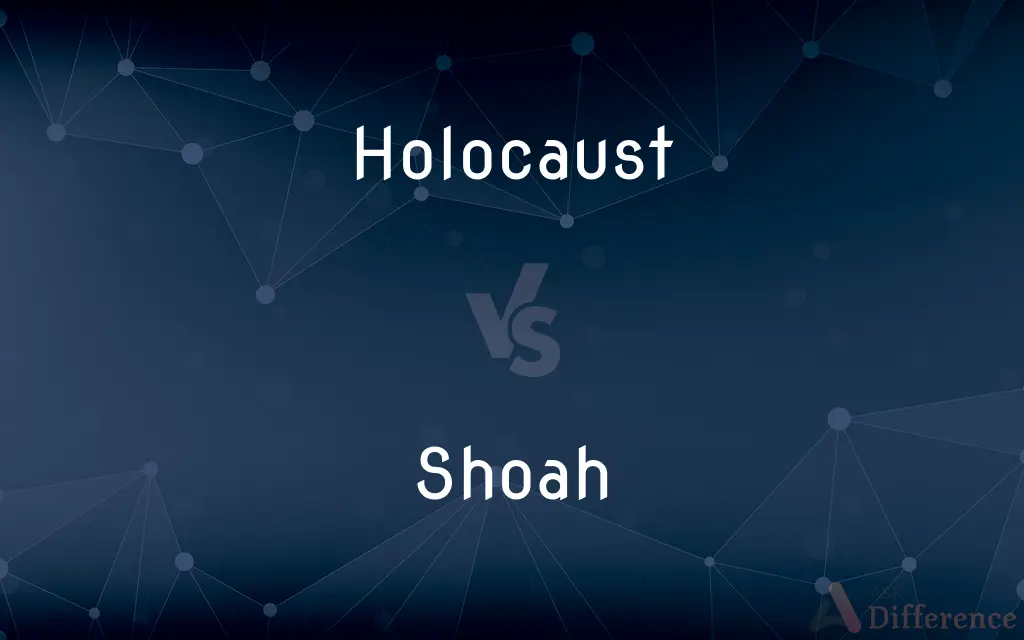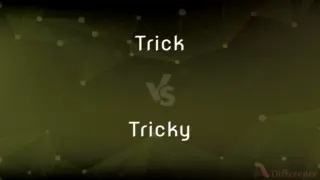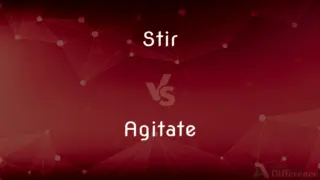Holocaust vs. Shoah — What's the Difference?
By Maham Liaqat & Fiza Rafique — Updated on March 18, 2024
The Holocaust refers to the mass murder of Jews during WWII, while Shoah, meaning "catastrophe" in Hebrew, specifically denotes the Jewish tragedy.

Difference Between Holocaust and Shoah
Table of Contents
ADVERTISEMENT
Key Differences
The Holocaust is a term widely used to describe the systematic, state-sponsored persecution and annihilation of six million Jews by Nazi Germany and its collaborators during World War II. It embodies the horrors of genocide on an unprecedented scale, involving concentration camps, ghettos, and mass executions. Shoah, a Hebrew word meaning "catastrophe" or "destruction," is used particularly within the Jewish community and in many scholarly works to specifically refer to the genocide of the Jews during this period.
While the Holocaust is a term recognized globally, encapsulating both the specific genocide of Jews and the broader atrocities committed against other groups, Shoah is more focused. It highlights the unique Jewish experience of systematic extermination and cultural obliteration, without diluting the specificity of their suffering by encompassing other Nazi crimes.
The use of "Holocaust" in broader discourse has sparked debates about the inclusivity and exclusivity of historical narratives. Some argue it can overshadow the distinctiveness of the Jewish genocide by potentially including the suffering of other groups, such as the Romani, disabled, and political prisoners. Conversely, Shoah remains a poignant reminder within the Jewish community and among scholars of the genocide's specificity to the Jewish people, offering a term that is deeply rooted in their own language and historical experience. It serves as a testament to the indelible impact of the genocide on Jewish identity and collective memory.
Comparison Chart
Meaning
Greek for "sacrifice by fire"
Hebrew for "catastrophe" or "destruction"
Scope
Broad, can include other victim groups
Specifically refers to the Jewish genocide
ADVERTISEMENT
Usage
Global, in various languages
Primarily in Jewish communities and scholarly works
Emphasis
Genocide and broader atrocities by Nazis
Unique suffering and genocide of Jews
Perception
Emphasizes the event's horror and scale
Highlights the Jewish experience and memory
Compare with Definitions
Holocaust
Systematic Genocide
The Holocaust saw the extermination of six million Jews under Nazi rule.
Shoah
Jewish Catastrophe
Shoah specifically refers to the devastation experienced by the Jewish community during WWII.
Holocaust
Widespread Term
Schools teach the history of the Holocaust to underscore the dangers of unchecked hatred and bigotry.
Shoah
Hebrew Term
The term Shoah is used in many Jewish prayers and remembrances to specifically honor the Jewish victims.
Holocaust
Inclusive of Other Groups
The Holocaust also targeted Romani people, disabled individuals, and political dissidents.
Shoah
Focused Narrative
Shoah literature and films often delve into personal stories and the Jewish cultural loss.
Holocaust
Memorialization
Holocaust memorials around the world serve as poignant reminders of the atrocities committed.
Shoah
Cultural Significance
Shoah remembrance plays a crucial role in Jewish communities, emphasizing the need to preserve their history and identity.
Holocaust
Representation in Media
Many films and documentaries have been made about the Holocaust, aiming to educate and remind future generations.
Shoah
Scholarly Use
Academics studying Jewish history and the genocide often prefer the term Shoah for its specificity.
Holocaust
Great destruction resulting in the extensive loss of life, especially by fire.
Shoah
The mass murder of European Jews and other groups by the Nazis during World War II.
Holocaust
Holocaust The genocide of European Jews and other groups by the Nazis during World War II
“Israel emerged from the Holocaust and is defined in relation to that catastrophe” (Emanuel Litvinoff).
Shoah
A mass murder. en
Holocaust
A massive slaughter
“an important document in the so-far sketchy annals of the Cambodian holocaust” (Rod Nordland).
Shoah
To destroy; to remove; to take down, especially from an Internet platform.
I had to create a new account, because my old one was shoahed.
Holocaust
A sacrificial offering that is consumed entirely by flames.
Holocaust
(religion) An offering or sacrifice to a deity that is completely burned to ashes.
Burnt offering
Holocaust
(by extension)
Holocaust
A complete or large offering or sacrifice.
Holocaust
Complete destruction by fire; also, the thing so destroyed.
Holocaust
(figuratively)
Holocaust
To sacrifice (chiefly an animal) to be completely burned.
Holocaust
To destroy (something) completely, especially by fire.
Holocaust
To subject (a group of people) to a holocaust (mass annihilation); to destroy en masse.
Holocaust
A burnt sacrifice; an offering, the whole of which was consumed by fire, among the Jews and some pagan nations.
Holocaust
Sacrifice or loss of many lives, as by the burning of a theater or a ship.
Holocaust
An act of great destruction and loss of life
Holocaust
The Nazi program of exterminating Jews under Hitler
Common Curiosities
What is the Holocaust?
The Holocaust was the state-sponsored persecution and murder of six million Jews by the Nazi regime and its allies during World War II.
What does Shoah mean?
Shoah is a Hebrew word meaning "catastrophe" or "destruction," used specifically to refer to the genocide of the Jews during the Holocaust.
Why is the term Shoah preferred by some?
Shoah is preferred by some for its specificity to the Jewish experience and for being deeply rooted in Jewish language and memory.
Who were the victims of the Holocaust?
The primary victims were Jews, but the Holocaust also targeted Romani people, disabled individuals, political prisoners, and others.
What is the significance of Holocaust education?
Holocaust education aims to teach about the dangers of prejudice, hatred, and indifference to prevent future genocides.
How are Holocaust and Shoah different?
The Holocaust is a broader term that can encompass the genocide of Jews and other groups, while Shoah specifically refers to the Jewish genocide.
Are the terms Holocaust and Shoah interchangeable?
While often used interchangeably in general discourse, they carry different connotations and scopes, with Shoah specifically highlighting the Jewish tragedy.
What does the term Holocaust originate from?
The term Holocaust comes from a Greek word meaning "sacrifice by fire," reflecting the mass murders and destruction.
How is the Holocaust memorialized?
The Holocaust is memorialized through museums, memorials, educational programs, and annual remembrance days worldwide.
How is Shoah observed within Jewish communities?
Shoah is observed with memorial ceremonies, educational programs, and through cultural expressions like literature and film.
Why is it important to differentiate between Holocaust and Shoah?
Differentiating between the two emphasizes the unique suffering of the Jewish people and the broader context of Nazi atrocities.
Can Shoah be used to describe other genocides?
Shoah is specifically used to describe the Jewish genocide during World War II and is not typically used for other genocides.
What impact did the Holocaust have on the world?
The Holocaust profoundly impacted global policies on human rights, genocide prevention, and the treatment of refugees and minorities.
How do Holocaust and Shoah contribute to Jewish identity?
Both terms, especially Shoah, play a crucial role in Jewish cultural and historical identity, emphasizing resilience and the importance of memory.
What lessons can be learned from the Holocaust and Shoah?
The key lessons include the importance of tolerance, the dangers of unchecked power, and the need to remember and learn from past atrocities.
Share Your Discovery

Previous Comparison
Trick vs. Tricky
Next Comparison
Stir vs. AgitateAuthor Spotlight
Written by
Maham LiaqatCo-written by
Fiza RafiqueFiza Rafique is a skilled content writer at AskDifference.com, where she meticulously refines and enhances written pieces. Drawing from her vast editorial expertise, Fiza ensures clarity, accuracy, and precision in every article. Passionate about language, she continually seeks to elevate the quality of content for readers worldwide.













































